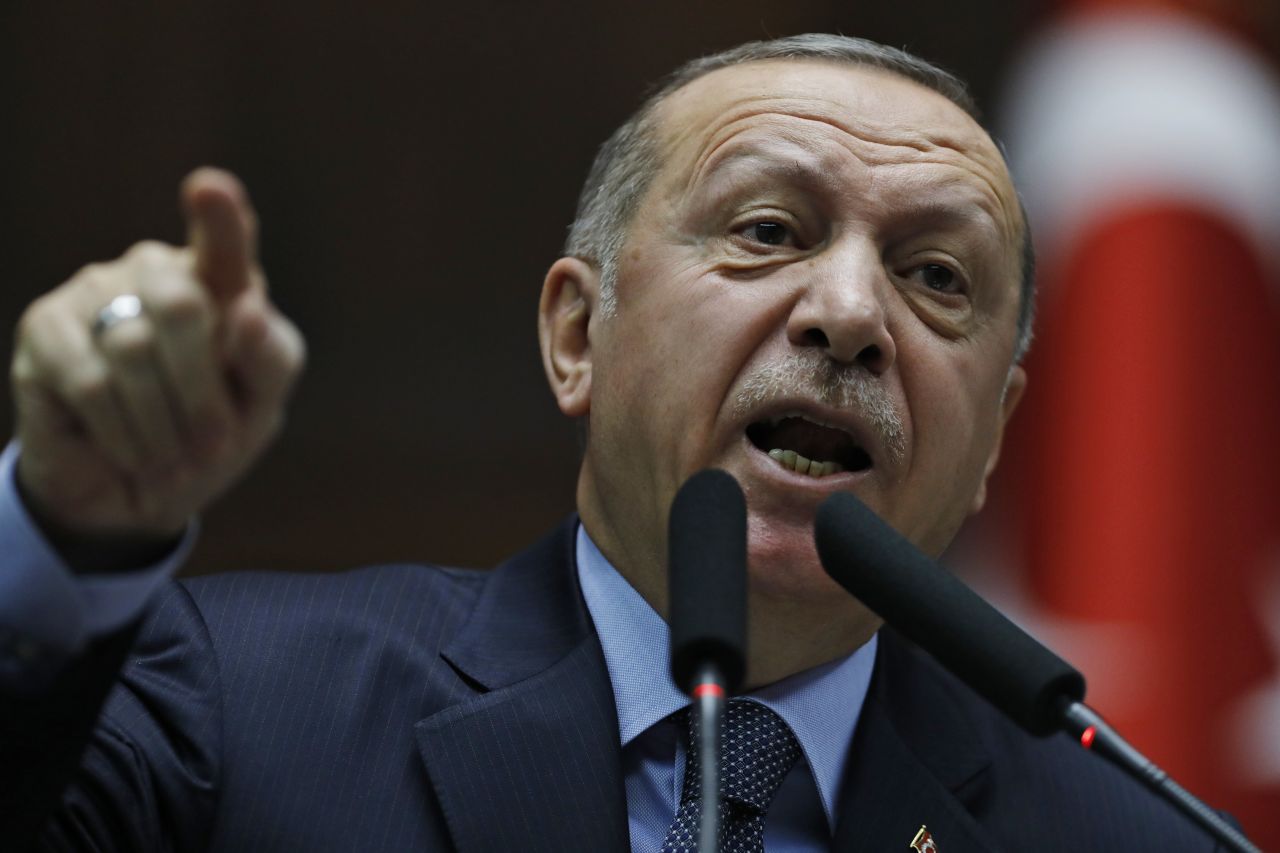M K Bhadrakumar |
Turkey has so far played Washington and Moscow off against each other over the Syrian situation by leveraging its importance as a ‘swing state,’ its geography and its credentials as a NATO power.
These are heady days for Turkish President Recep Erdogan. Confounding most western analysts, Turkey’s military has wrapped up its operation to wrest control of Afrin in northern Syria from the Kurds in the space of 74 days. Erdogan’s domestic popularity is soaring, as he rides the wings of Turkish nationalism.
It may seem he has outwitted both the Americans and the Russians. Washington pretended it was not party to the struggle to control Afrin (even as the Kurds fought with US-supplied weapons), while Moscow (whose past dealings with Kurds remain an open secret) chose not to impede the Turkish operation, allowing latent Turkish-American tensions to escalate. In the process, Erdogan walked away the winner.
However, a contrarian picture is slowly emerging. Erdogan may not realize that Washington and Moscow might actually have entrapped Turkey. Half-way through the Turkish operation, Washington made an overture to Erdogan, with the then US Secretary of State Rex Tillerson visiting Ankara on February 15. This led to a decision to form working groups to address differences over Syria.
From the US perspective, it won’t be a bad thing if a protracted guerrilla war ensues in Afrin, one which would sap Erdogan’s appetite to mount further operations in northern Syria. Washington is playing for time on the diplomatic track.
The group’s first meeting took place in Washington on March 8-9, but it only resulted in more acrimony. Turkey unilaterally claimed an “understanding” had been reached about the US removing Kurdish militia from Manjib (to the east of Afrin), which would obviate the need for an expanded Turkish military operation to eliminate Kurdish control all along northern Syria.
But Washington furiously denies any such “understanding” and insists that it has no intention of vacating Manjib. Meanwhile, Tillerson has been replaced and a foreign-minister level meeting slated for March 18 stands postponed. The Turks have been left in limbo.
Unsurprisingly, Erdogan has “tilted” towards the Russian camp. A trilateral Russian-Turkish-Iranian presidential summit is due to take place in Istanbul on April 4. The Russians will hope to pin the slippery Turkish leader down firmly on their side.
Read more: Uncategorized Israel seeks Russian help in Syria. Will Russia oblige?
Turkey cannot afford to displease Russia at this point, since the latter has a line open to the Kurds in Afrin, who are threatening to wage a guerrilla war against “occupation” forces. Turkey is heavily dependent on air power to avoid a quagmire in Afrin, and Russia controls Syrian air space.
From the US perspective, it won’t be a bad thing if a protracted guerrilla war ensues in Afrin, one which would sap Erdogan’s appetite to mount further operations in northern Syria. Washington is playing for time on the diplomatic track.
Half-way through the Turkish operation, Washington made an overture to Erdogan, with the then US Secretary of State Rex Tillerson visiting Ankara on February 15. This led to a decision to form working groups to address differences over Syria.
The heart of the matter is that, new Cold War symptoms notwithstanding, Moscow still desires an enduring Syrian settlement to be the outcome of a Russian-American joint effort. Put differently, the prospect of a summit between President Donald Trump and President Vladimir Putin in the “not too distant future” – as Trump disclosed on Tuesday – means that Turkey’s capacity to leverage US-Russia tensions is set to diminish.
If the talks with the US gain momentum, Moscow is unlikely to encourage Turkey to crack the whip with the Kurds. Turkey may then have to make an existential decision as regards its future operations in northern Syria. It will be, in effect, attacking its NATO ally in Manjib. Again, if US-Russia talks resume regarding a Syrian settlement, Turkey may have to accept at some point the involvement of Syrian Kurds in any peace process – something that both Washington and Moscow have advocated in the past.
Read more: Russia, Turkey, Iran to hold Syria talks
The leader of the main Turkish opposition Republican People’s Party, Kemal Kiliçdaroglu, had a point when he said this week that Turkey has been “dragged into the swamp of the Middle East.” To quote Kilicdaroglu: “The Americans have settled around Syria’s oil and gas fields, while the Russians have expanded their military bases, and Iran and China are getting lucrative tenders from the Damascus government for the reconstruction of Syria. Turkey, meanwhile, has not gained anything.
Ultimately, if you form your policy in line with the interests of hegemonic powers like the US and Russia this is what you end up with.” In Kilicdaroglu’s opinion, Turkey should initiate a regional summit with Iran, Iraq and Syria, as these are countries with a “shared interest in defending their territorial integrity and fighting terrorism.” Indeed, all four of these states also run the risk of getting thrown under the bus at some point if the proxy war between the US and Russia morphs into a Syrian peace process.
M. K. Bhadrakumar has served as a career diplomat in the Indian Foreign Service for over 29 years, with postings as India’s ambassador to Uzbekistan (1995-1998) and to Turkey (1998-2001). He writes extensively in Indian newspapers, Asia Times and the “Indian Punchline”. This piece was first published in Asia Times and is republished with author’s permission. The views expressed in this article are the author’s own and do not necessarily reflect Global Village Space’s editorial policy.














